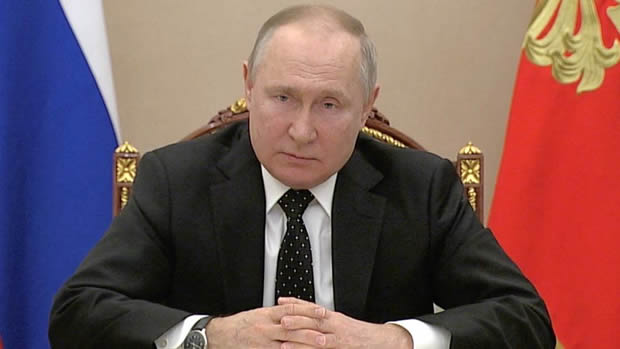
Russian President Vladimir Putin will not hold his traditional big year-end news conference, the Kremlin has said, for the first time in 10 years.
But spokesman Dmitry Peskov said “we hope the president will after all find an opportunity to talk” to the media.
No reason was given for the cancellation, but it comes amid growing unease among Russians over Mr Putin’s decision to invade Ukraine in February.
Russian troops have suffered a series of painful reverses since then.
“Regarding the big press conference, yes, it won’t happen before the New Year,” Mr Peskov told reporters on Monday.
But he added that Mr Putin could find a way to talk to the media, stressing that “he does it regularly”.
Over the past 10 years, the carefully choreographed annual press conferences attended by dozens of journalists – both Russian and foreign – usually lasted for hours in Moscow.
Mr Putin went to great lengths to be seen on national TV as a leader directly involved with ordinary Russians, patiently answering a wide range of questions – from regional reporters about fixing poor roads in remote villages and publicly castigating local officials, to the world of grand geopolitics.
But a number of opposition Russian experts have said that – in the absence of press freedom – such gatherings resembled staged shows, where pro-Kremlin reporters were reduced to asking the country’s all-powerful ruler mostly flattering questions.
They said the fact a handful of independent journalists were also present – but not always given a chance to ask questions – did not change the overall picture.
Still, such conferences were closely monitored by politicians around the world, who were trying to gauge the direction the Kremlin leader was keen to take Russia.
In June the Kremlin also postponed President Putin’s annual televised marathon phone-in with members of the public – and did not set a new date for it.
The Kremlin leader is also required by the constitution to make an annual State of the Union speech to parliament by the end of the year. Mr Peskov said this issue was under review.
Source: BBC























